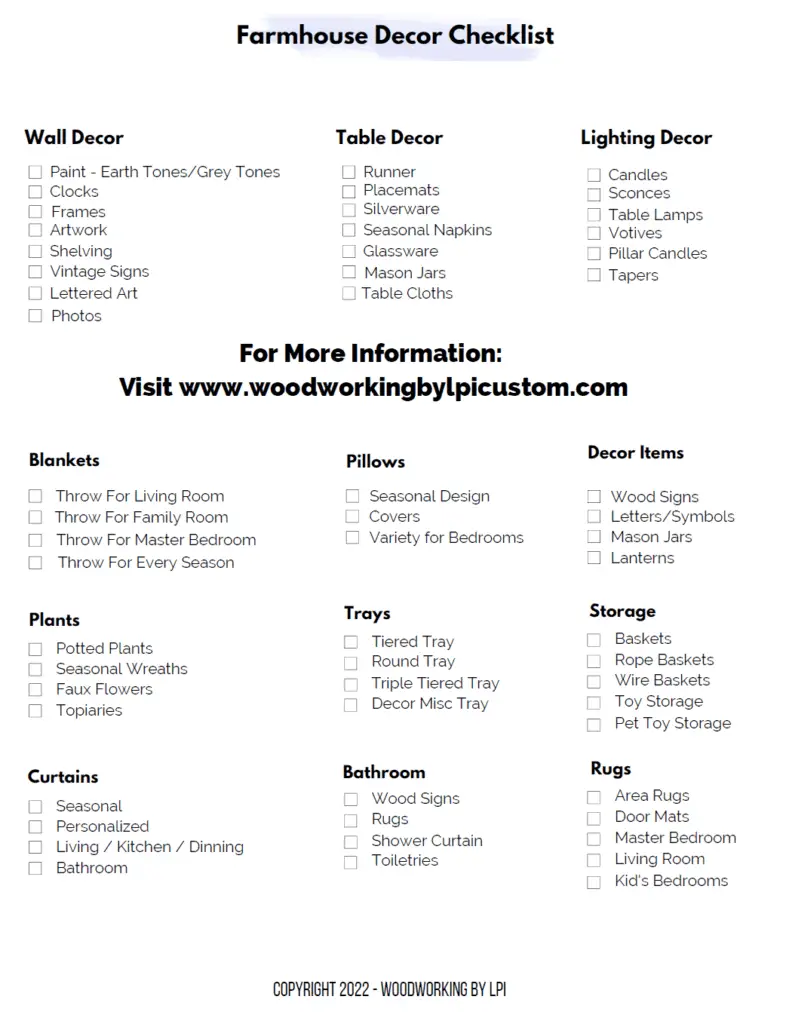Artificial Intelligence (AI) has had a profound impact on the world of home decor design. With the development of AI technology, designers now have access to powerful tools and platforms that are revolutionizing the way they approach interior design.
AI has enhanced personalization, efficiency, and creativity in creating dream spaces. From generative AI that revolutionizes home styling to real-world examples of AI in interior design, the transformative role of AI in the home decor industry is undeniable.
Key Takeaways:
- AI technology is shaping the future of home decor by enhancing personalization and creativity.
- Generative AI tools like DALL-E and Midjourney are reshaping the design process, translating simple text commands into detailed renderings.
- A faster design iteration and the cross-pollination of AI and human creativity are expanding the boundaries of home decor designs.
- AI’s impact on the home decor industry goes beyond styling, with smart home innovations and eco-conscious choices becoming essential.
- Addressing the ethical aspects of AI, such as bias in AI-generated images, is crucial for ensuring fairness and inclusivity in home design.
Introduction to AI in Home Decor
The rise of AI technology in interior design has revolutionized the way designers approach their craft. With the advancements in AI technology, designers now have access to powerful tools and platforms that enhance personalization, efficiency, and creativity in creating dream spaces.
The Rise of AI Technology in Interior Design
AI has emerged as a game-changer in the field of interior design. AI-powered tools and platforms have become essential in generating innovative ideas, streamlining the design process, and enhancing the overall customer experience.
Demystifying How AI Affects Home Decor Designs
AI has a significant impact on decorating trends and influences interior design in a multitude of ways. From AI-powered virtual assistants that assist in spatial planning to AI-enhanced catalogs and styles that inspire creativity, AI technology has transformed the home decor industry. By leveraging AI tools, designers can achieve faster design iteration, expand experimental boundaries, and cross-pollinate AI and human creativity for breathtaking decor results.
Decoding the Generative AI Revolution in Home Styling
Generative AI has transformed home styling, bringing concepts to clarity in a whole new way. Leveraging advanced machine learning algorithms, platforms like DALL-E and Midjourney have revolutionized the decor industry. With generative AI, designers can now translate simple text commands into detailed renderings, unlocking new possibilities in design creation.
One notable example of generative AI in action is DALL-E, an AI model developed by OpenAI. DALL-E can generate unique images from textual descriptions, allowing designers to visualize and explore creative concepts with ease. By simply describing their vision, designers can generate stunning visuals that inspire and guide the design process.

Another impactful AI tool that is reshaping decor is Midjourney. This AI-powered platform utilizes a combination of generative AI and computer vision to provide designers with realistic room renderings. By analyzing room layouts and design elements, designers can experiment with different styles and configurations, helping them make informed decisions before finalizing their designs.
By harnessing the power of generative AI tools like DALL-E and Midjourney, designers can push the boundaries of creativity and explore innovative design concepts that were once unimaginable. These AI tools are revolutionizing home styling by offering designers a novel way to bring their ideas to life and create breathtaking spaces.
How AI Affects Home Decor Designs
Faster Design Iteration and Experimental Boundaries Expanded
AI has revolutionized the home decor industry by enabling faster design iteration and expanding the boundaries of experimentation. With AI-powered tools, designers can generate multiple design options quickly, allowing for rapid exploration of ideas and concepts. This increased efficiency in the design process not only saves time but also enables designers to push the boundaries of creativity and innovation.
By leveraging AI algorithms and machine learning, designers can iterate through design variations at a much faster pace than traditional methods. AI-powered tools can analyze vast amounts of data, identify patterns, and generate design suggestions, allowing designers to explore a wider range of possibilities in a shorter amount of time.
This acceleration in design iteration enables designers to experiment with unconventional concepts and ideas. With AI, designers can push their creative boundaries and explore innovative design solutions that might otherwise remain uncharted territory. The rapid iteration process facilitated by AI empowers designers to step outside their comfort zone and create unique, groundbreaking designs that captivate and inspire.
Cross-Pollination of AI and Human Creativity in Decor
One of the most exciting aspects of AI in home decor is the cross-pollination between AI and human creativity. AI doesn’t replace human designers; it complements their skills and expands their creative horizons. Through collaboration between AI and human designers, the possibilities for innovative and imaginative home decor designs become limitless.
AI brings new perspectives and insights to the table, providing designers with fresh ideas and inspiration. By leveraging AI-powered tools, designers can tap into vast databases of design patterns, styles, and trends, helping them discover new combinations and possibilities that they may not have considered before.
Furthermore, AI can generate design suggestions based on user preferences and feedback, allowing designers to create personalized spaces that perfectly align with individual tastes and needs. This collaboration between AI and human designers enables the creation of harmonious designs that seamlessly blend technology and artistic vision.
The Future of Home Decor with AI
The future of home decor is closely intertwined with AI technology. As AI continues to advance, it will have an even greater impact on the home decor industry. From personalized design solutions to eco-conscious choices, AI has the potential to transform the way we create and experience our living spaces.
With AI-powered tools and platforms, designers can offer personalized design solutions that cater to individual tastes and preferences. AI algorithms can analyze data and user feedback to create customized recommendations, ensuring that each home reflects the unique style and personality of its occupants.
Furthermore, AI can contribute to eco-conscious choices in home decor. By leveraging AI technology, designers can make sustainable choices by recommending materials, furnishings, and appliances that are energy-efficient and environmentally friendly. This not only benefits the planet but also enables homeowners to create spaces that align with their values.
AI is also driving innovation in functionality and automation within the home. Smart home devices powered by AI can enhance convenience and connectivity, offering features such as voice-controlled assistants, automated lighting systems, and intelligent temperature control. These innovations not only make our homes more efficient and comfortable but also provide new opportunities for creative and functional design.
As AI continues to evolve, it holds the promise of enabling designers to push the boundaries of creativity and innovation even further. By leveraging AI tools, designers can explore new design concepts, experiment with unconventional materials and layouts, and create immersive and dynamic living spaces that were once unimaginable.
The future of home decor with AI is an exciting one, filled with endless possibilities. As technology advances, we can expect to see even more seamless integration of AI into the home decor industry, leading to enhanced personalization, efficiency, and creativity.

Real-world Examples of AI in Interior Design

Morpholio Board’s AI Application in Furniture Tagging
Morpholio Board is an AI-powered application that brings efficiency and organization to the process of tagging and organizing furniture and decor items in interior design. By leveraging AI technology, Morpholio Board enables designers to quickly and accurately tag and categorize furniture, making it easier to search for specific items and create visually cohesive design concepts. This AI application removes manual effort and saves valuable time, allowing designers to focus on their creative vision.
How Planner 5D and Modsy Are Personalizing Spatial Planning
Planner 5D and Modsy are innovative platforms that utilize AI to personalize spatial planning in interior design. These platforms empower users to visualize their dream spaces by creating interactive 3D models based on AI-powered algorithms and data. With Planner 5D and Modsy, users can experiment with various furniture arrangements, color schemes, and decor options, all tailored to their individual preferences and needs. This personalized approach to spatial planning enhances the design process, enabling users to make informed decisions and envision their ideal living spaces.
| AI Application | Platform/Tool |
|---|---|
| Morpholio Board | Streamlines furniture tagging and organization |
| Planner 5D | Personalizes spatial planning with 3D models |
| Modsy | Creates personalized design concepts |
Maximizing Creativity and Efficiency with AI Solutions
When it comes to home decor, AI solutions offer a multitude of benefits that can maximize your creativity and efficiency. By embracing innovative AI-enhanced catalogs and styles, you gain access to a vast range of options and inspiration at your fingertips. These tools speed up the design process, enhance creativity, and provide you with the resources needed to bring your vision to life.
AI-driven budget optimization is another crucial aspect of home decor. With AI, you can make more cost-effective choices without compromising on quality. These intelligent tools analyze your budget, recommend suitable options, and help you strike the perfect balance between aesthetics and affordability. By leveraging AI solutions, you can ensure that each design decision aligns with your goals and financial constraints.
Smart Home Decor Innovations and Eco-Conscious Choices
AI has revolutionized the world of home decor, introducing a range of smart innovations and eco-conscious choices that enhance both functionality and sustainability. These advancements have transformed the way we interact with our homes, making them more intuitive, energy-efficient, and connected. From AI-powered virtual assistants to energy-saving smart devices, here are some of the latest smart home decor innovations that are reshaping the industry:
| Smart Home Decor Innovation | Description |
|---|---|
| AI-Powered Virtual Assistants | Intelligent virtual assistants, such as Amazon Alexa and Google Assistant, enable seamless voice control of various home decor elements, such as lighting, temperature, music, and more. They offer hands-free convenience and integration with other smart devices. |
| Smart Lighting | AI-enabled lighting systems, like Philips Hue and Lutron, allow homeowners to customize the ambiance of their living spaces. These smart lights can be controlled remotely through smartphones or voice commands, adjusting color, intensity, and scheduling. |
| Energy-Efficient Appliances | Smart appliances, such as smart thermostats, refrigerators, and washing machines, utilize AI algorithms to optimize energy consumption. These devices automatically adjust settings based on usage patterns, helping to reduce energy waste and lower utility bills. |
| Smart Furniture | AI-integrated furniture, such as motorized adjustable desks, smart beds, and connected sofas, enhances comfort and convenience. These innovative pieces of furniture can be controlled remotely and offer features like customizable ergonomics and interactive functionalities. |
AI not only brings smart home decor innovations but also empowers designers and homeowners to make eco-conscious choices. With AI algorithms analyzing data and recommending sustainable materials, energy-saving solutions, and environmentally-friendly designs, it becomes easier to create eco-friendly living spaces that minimize the carbon footprint.
By leveraging AI-powered tools and platforms, designers can explore sustainable options while ensuring aesthetic appeal and functionality. Whether it’s incorporating recycled materials, using energy-efficient appliances, or designing for optimal natural lighting, eco-conscious choices guided by AI enable the creation of sustainable and eco-friendly homes.
Tackling the Ethical Aspects of AI in Home Design
As AI continues to integrate into home design, it is crucial to address the ethical considerations that arise. Designers must be mindful of the ethical aspects of AI in order to create inclusive, unbiased, and responsible designs.
Addressing Bias and Authorship Concerns in AI-Generated Images
One of the ethical challenges in AI-generated images is the presence of bias. AI models are trained on data, and if that data contains biases, it can result in biased design outcomes. Designers must actively work to identify and mitigate biases in AI-generated images to ensure fair representation and prevent reinforcing stereotypes.
“Designers have a responsibility to critically examine and challenge the biases inherent in AI-generated images. By interrogating and diversifying the training data, as well as involving diverse teams in the design process, we can create more equitable and inclusive designs.”
Another ethical concern is the question of authorship. With AI-generated designs, the line between human creativity and algorithmic contribution becomes blurred. Designers must evaluate and clarify the role of AI in the design process, giving proper credit to human designers while acknowledging the collaborative nature of AI-generated designs.
The Importance of Curation over Creation in AI’s Era
In the era of AI, the importance of curation becomes evident. While AI algorithms can generate an abundance of design options, it is in the curation and refinement process that designers add their unique touch and sensibility. Curation allows designers to ensure the uniqueness, coherence, and alignment of AI-generated designs with the specific visions and needs of their clients.
Through thoughtful curation, designers can also navigate the fine line between personalization and overwhelming choice. By selecting and presenting a curated range of design options to clients, designers can guide the decision-making process, providing meaningful choices that cater to individual tastes while avoiding decision fatigue.
| Ethical Aspects of AI in Home Design | Action Steps |
|---|---|
| Bias in AI-generated images |
|
| Authorship concerns |
|
| The importance of curation |
|
Conclusion
The transformative journey of AI in home decor has revolutionized the industry, bringing about significant advancements and shaping the way designers approach their craft. AI technology has had a profound impact on the way home decor designs are conceptualized, created, and personalized.
Looking ahead, we can expect an increasingly symbiotic relationship between AI and designers, where AI tools enhance and complement human creativity and expertise. While AI brings efficiency, automation, and an array of innovative options, designers bring their unique vision, artistic flair, and understanding of human emotions and preferences.
The symbiotic relationship between AI and designers allows for a harmonious collaboration that yields exceptional results. Designers can harness the power of AI to generate new ideas, iterate through design options quickly, and push the boundaries of creativity. At the same time, they provide the human touch and interpret clients’ aspirations to create personalized and meaningful spaces.
In conclusion, the transformative journey of AI in home decor signifies a bright and promising future for the industry. By embracing the potential of AI and nurturing the symbiotic relationship between AI and designers, we can create spaces that are not only aesthetically pleasing but also responsive to the unique needs and desires of individuals and families, ultimately enhancing their quality of life.
FAQ
How does AI affect home decor designs?
AI has made a significant impact on home decor designs by revolutionizing the way interior design is approached. It has provided designers with powerful tools and platforms that enhance personalization, efficiency, and creativity in creating dream spaces.
What is the role of AI technology in interior design?
AI technology plays a crucial role in interior design by generating innovative ideas, streamlining the design process, and enhancing the overall customer experience. It enables faster design iteration, expands experimental boundaries, and fosters a collaborative relationship between AI and human designers.
How does generative AI revolutionize home styling?
Generative AI revolutionizes home styling by using advanced machine learning algorithms to translate simple text commands into detailed renderings. Platforms like DALL-E and Midjourney provide powerful tools that reshape the way designers approach their work, from generating concepts to bringing them to clarity.
What are the benefits of AI in home decor designs?
AI in home decor designs enables faster design iteration, pushes the boundaries of creativity and innovation, and fosters a collaborative relationship between AI and human designers. It also offers personalized design solutions, eco-conscious choices, and smart home decor innovations that enhance functionality and connectivity within living spaces.
What are some real-world examples of AI in interior design?
Some real-world examples include Morpholio Board, an AI-powered application that streamlines furniture tagging and organization, and Planner 5D and Modsy, platforms that use AI to personalize spatial planning and help users visualize their dream spaces.
How can designers leverage AI solutions for home styling?
Designers can leverage AI solutions to maximize their creative potential and streamline their workflow. AI-enhanced catalogs and styles provide a vast range of options and inspiration, while AI-driven budget optimization tools help designers make cost-effective choices without compromising on quality.
What are some smart home decor innovations inspired by AI?
Smart home decor innovations inspired by AI include AI-powered virtual assistants and energy-efficient smart home devices. These innovations enhance functionality, automation, and connectivity within living spaces.
What are the ethical considerations of AI in home design?
Ethical considerations in AI home design include addressing concerns such as bias in AI-generated images and questions of authorship. Designers must ensure fairness and minimize biases, as AI models are trained on data that may contain biases. The importance of curation over creation also becomes evident in the AI era, as designers curate and refine AI-generated designs to ensure uniqueness and alignment with client visions.
How has AI transformed the home decor industry?
AI has transformed the home decor industry by enhancing personalization, efficiency, and creativity in the design process. It has opened up new possibilities and revolutionized the way designers approach their craft, creating transformative and innovative designs that blend technology and artistic vision.
What is the future of home decor with AI?
The future of home decor is closely intertwined with AI technology. As AI continues to advance, it will have an even greater impact on the industry, offering personalized design solutions, eco-conscious choices, and smart home innovations that enhance functionality and connectivity within living spaces.












